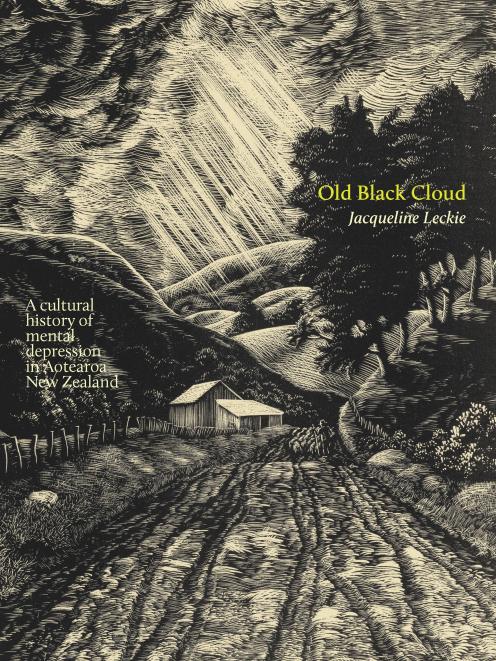
The title of Jacqueline Leckie’s newest book, Old Black Cloud, obliquely refers to the common English translation for Aotearoa, "the land of the long white cloud". By titling her work the near opposite of this translation, Leckie is pointing towards the myth lampooned in the Blam Blam Blam song, There is No Depression in New Zealand.
Old Black Cloud presents a persuasive argument that depression has in fact been present in New Zealand throughout its entire history.
Although Leckie is discussing a health issue, the book is a cultural history, not a medical one. Though the author of course draws deeply on medical records from five of New Zealand’s main mental hospitals, as well as case studies reported by health professionals, Old Black Cloud very much focuses on how cultural and social factors influence depression.
Geographical isolation is frequently cited as a contributing factor to depression among migrants to Aotearoa, particularly its role in distancing depressed people from friends and family. Language barriers come into play for Chinese goldminers and Dalmatian gum diggers alike. The effect of racism is also pointed out for Māori, Pasifika and Chinese patients, even when their medical records play down the impact of racist encounters on wellbeing.
The effect of these socio-cultural factors on depression make intuitive sense to the average person, but nevertheless often seem not to have been taken into account by health professionals at the time.
Leckie notes that depression has often been described as a modern illness, while also proving that this is not the case.
Her second chapter focuses entirely on Māori, and mostly on the pre-colonial period, noting the many terms in te reo for depression, the traditional understanding of its causes and the protocols and rituals to treat it, all of which show the historical prevalence of this illness.
She also charts depression’s occurrence among goldminers, rural farmers and their families, and other early settlers, before taking us to the present day.
By doing this, Leckie not only puts truth to the lie of depression’s modernity, but also presents the first comprehensive cultural history of depression in this country.
As the first history of its kind, it is necessarily more descriptive than interpretive, and Leckie demonstrates admirable rigour and restraint in not drawing conclusions, opting instead to simply lay out the facts, as far as she is able.
Privacy laws prevented many hospital records from being released for this study, meaning future research may be better able to illuminate the history of depression and its treatment in the 20th century specifically.
Despite these small caveats, Old Black Cloud is undoubtedly destined to become a foundational text in this field and establishes a key stepping stone for all future research.
• Feby Idrus is a writer, musician and arts administrator.












